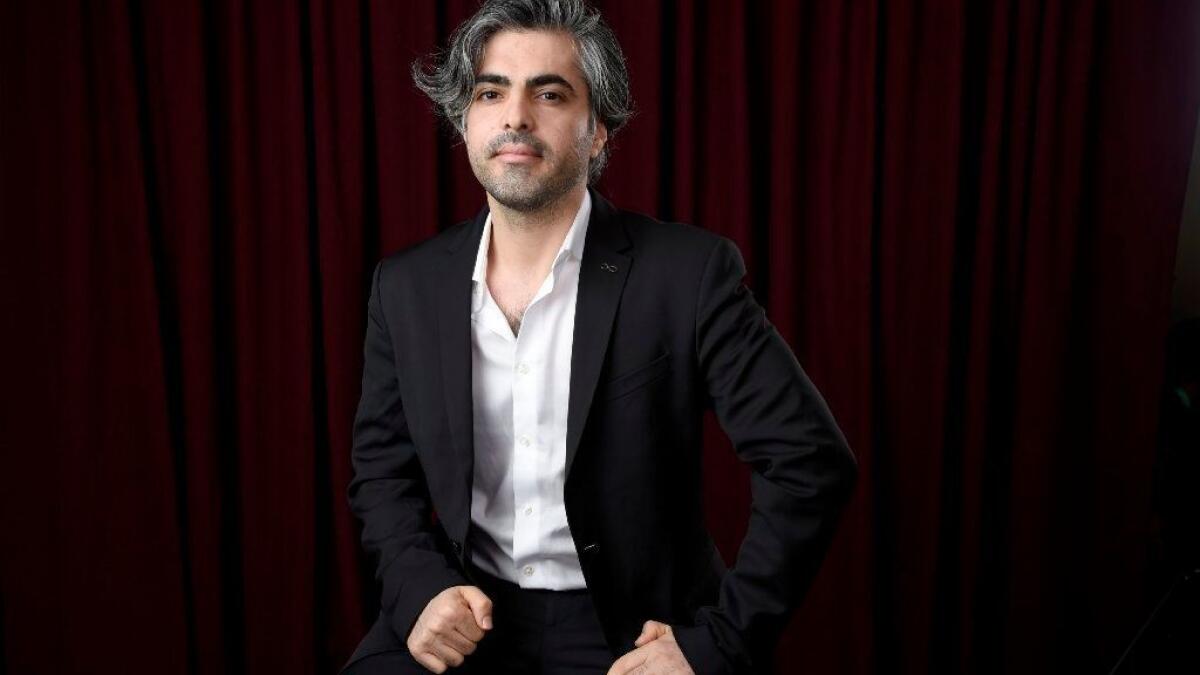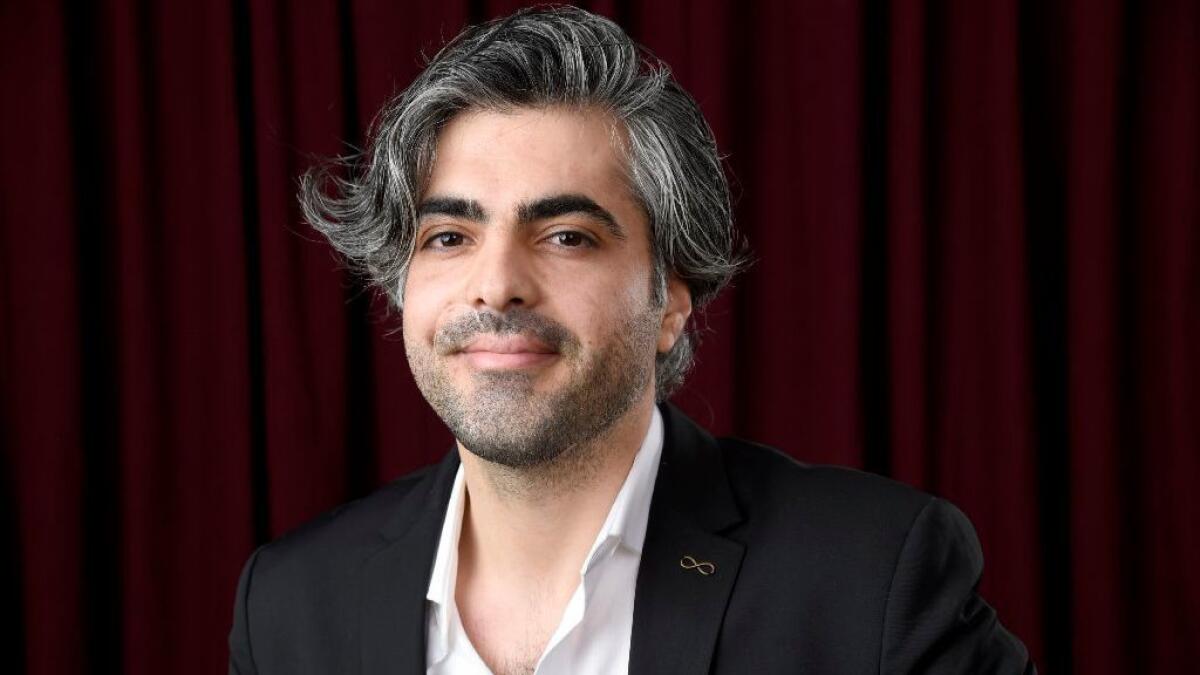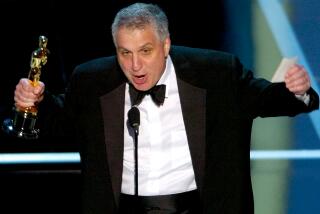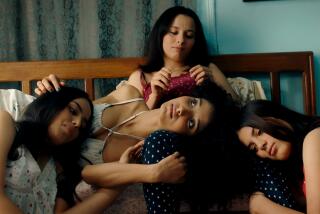In chronicling the war in Syria, Feras Fayyad knew he was documenting history before it could be reshaped

Director Feras Fayyad’s powerful documentary “Last Men in Aleppo” follows volunteer members of the White Helmets as they rescued civilians inside the Syrian war’s Battle of Aleppo from 2015 to early 2017 and is the first Syrian film to earn an Oscar nomination.
Arrested twice by the Assad regime and tortured for his work, Fayyad was forced to leave his homeland and flee to Jordan, then to Turkey and today lives in Denmark. Before sitting down with The Envelope, Fayyad had just returned from screening the film at the Davos World Economic Forum.
“This film has helped me to not be just a victim,” Fayyad says. “It put me in the position of being equals [to the regime], to have a voice and have my words understood. Not just my voice, but the voice of hundreds of thousands of Syrians who lost their lives – they couldn’t tell their story, but I could. So many souls, many souls …”
The film’s synopsis says it follows Syria’s White Helmets. Yet, for me it felt more about the citizens being bombed and under siege by their government and how people react.
Yes, that’s correct. It’s not just about the White Helmets. It’s talking about the impact of the Syrian war over the Syrian citizens and society and how it has divided and destroyed the country. In human terms, how do people survive such a conflict and yet do what they can for their own society? This is what makes it shareable with everyone on the Earth right now. Do we stay and fight or go somewhere else and start over?
How much actual film footage did you have prior to editing?
I filmed between 300 and 350 hours, but I put about 80 hours in front of the editor; the film was five hours when we sent it to Sundance. I tried to make it as chronologically real as I could, so I didn’t want to change the timeline at all; I’m aware how important the subject is and that it’s a historical document. It’s a historical story made before anyone else has the power to tell us a different story and remove the reality that happened. It becomes about who will write the real history, so in the shooting and also the editing process I was careful.
The film opens with a zoom shot of a goldfish eyeball and goldfish also re-occur throughout the film. How did that fish allegory come about?
That was from one of the main characters, Khaled, when he bought goldfish to make a pond for some fun around him, a space to breathe inside all the death. When he was killed, I saw how the media covered refugees and I wanted to show what [the refugees’] real dreams were versus what the international community or media thinks they should be. So I found the bombed out home and put the beautiful fish tank inside it.
It’s about resistance. But it’s also about a collective memory — a more global view — so inside the eyeball you can see small stars, and then I pull back out. I tried to bring the galaxy down into the one small eyeball and out again.
I read a line of yours I liked: ‘Make art during war.’ Normally, people wait until war ends to create stories to sort through and heal the trauma. Why is this “during war” important to you?
That’s a true thing. In Davos, they called it, “Art in the War Zone.” Normally, the world says you have to wait to tell your war stories until the end. I think as an artist you need an attitude: It’s the middle of the war; this is our normal — and what is your role as an artist? Should we close our eyes and sleep until the end of the war and then tell you our opinion? Then why are we here?
As an artist, you have to think [about] how you can tell the stories and provide people a big question in the midst of all of this — you want them to feel so that opens their minds up to solutions.

WATCH: Video Q&A’s from this season’s hottest contenders »
You were arrested twice and tortured by the Assad regime and you said an interrogator told you, “You’ll have double the amount of torture because you’re a filmmaker.” Having just been nominated for an Oscar, what feeling does it produce in you? Revenge or something else?
At that time, I couldn’t answer the investigator. I had to keep silent, or I would be killed. I was in front of a very powerful man who represented authority — and who told us the people would have no voices and no one would hear our screams and our pain or our shouting for justice.
To me, bringing the movie to this place says a lot not just to the investigator trying to torture me, but for a thousand, hundred voices all over the world that they have to not give up and not let the depression, the fear, the sacredness kill them or keep them silent. Everyone can have a voice to do something.
More to Read
From the Oscars to the Emmys.
Get the Envelope newsletter for exclusive awards season coverage, behind-the-scenes stories from the Envelope podcast and columnist Glenn Whipp’s must-read analysis.
You may occasionally receive promotional content from the Los Angeles Times.






